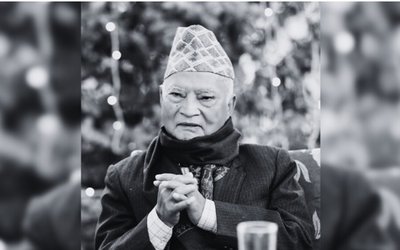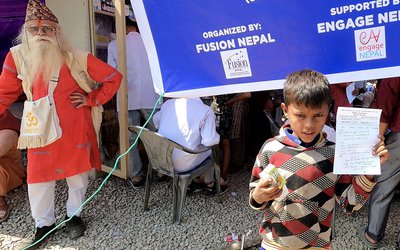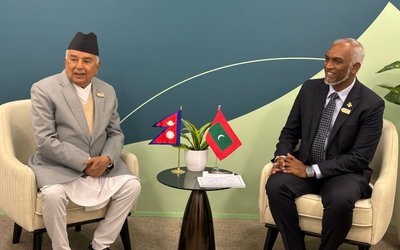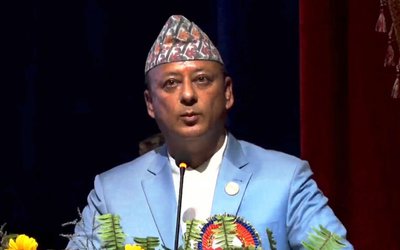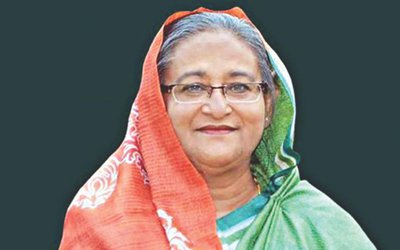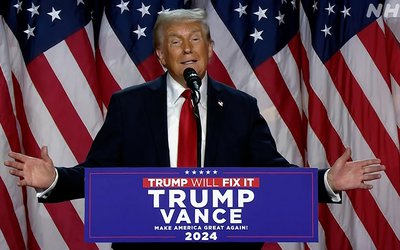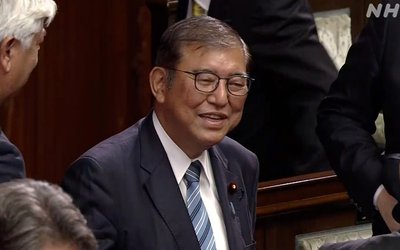When a majority feels insulted no one, majority or minority, will end upsecure. Secularism, smuggled into Nepal through the backdoors of Loktantra by a ‘strange bedfellows’ alliance ofavowed communist atheists and fundamentalist Abrahamic proselytizers, has done just that and now provoked wholly unnecessary but inevitable reactions. RPP and RPP-N are uniting against it, while a significant section of the Kangress is on a campaign to correct the party’s blunder of sleepwalking into it. When interviewed, Madheshi leaders have expressed glaani (remorse) for being blinded into supporting the impious Girija Koirala’s getting rid of Nepal’s Hindu designation and using secularism to curtail the King’s powers. Those crows are now coming home to roost, adding to ongoing political doldrums and increasing instability.
Last week’s reported desecration of Pashupati temple’s Holy of Holies by the Pashupati Development Trust and the Archaeological Survey of India is the latest in a series of “secular modernizations” inviting a backlash. Ironically, it was done without the requisite kshyama puja and in the name of India’s Hindutwa advocating prime minister; but this is not really surprising. Modi, during his first visit to Nepal was reported as having done his puja at Pashupati occupying the Nepal King’s traditional seat and that his Muslim foreign office spokesperson entered the temple that is off-limits to non-Hindus.
But before we begin to justifiably criticize the Mughlanis, it is worth reflecting first on the sins of Nepalis themselves during the country’s latest phase of mimetic modernization. The rot began during the last days of the Panchayat and rapidly accelerated with Loktantra. During the late 1980s, it was Queen Aishwarya who, impressed with the wealth of Tirupati, set up the Pashupati Development Trust with herself as Chairperson. Nothing wrong with it except the name and the intention: there is nothing to “develop” in a muktikshetra except oneself, and the ruler’s dutytowardsits physical upkeep and maintenance should not have been supplanted by ideas of increased earnings from religious tourism. An earlier and more unforgiveable sin was the creation of a similar Lumbini development board that was crass mammon bereft of any spiritual contentand which continues to be deeply offensive to the spiritually inclined among Buddhists and Hindus.
It is Loktantra and the rise of the Maoists (who were responsible for desecrating Hindu temples – but not places of worship of Abrahamic persuasions – and persecuting Hindu kiriyaputris!) that saw the ugly face of intolerant atheism and Mughlani proxy war against the Nepali state masquerading as secularism. It soon bit the hand that fed it: the Maoists tried to cash (wrongly) into nationalistic feelings by campaigning to remove Indian (Kerala) priests from Pashupati who were instituted there by Adi Sankaracharya himself in the Eighth Century. The Nepali King – the protector of Asli Hindustan since the days of Prithvi Narayan Shah – having been sidelined, the sight of the Indian foreign secretary and its ambassador having to act as the protector of tradition (with the then Nepali minister of culture serving as an attendant to the Mughlani viceroys) was deeply offensive to many Nepalis. The Maoist ignorance of the fact that many Nepalis serve as priests in many temples across India and their subsequent interference with Pashupati and Kumari rituals eventually contributed to their continuing decline in popularity.
With the rise of Modi has come the disgracing of the Yechuri-ShyamSharanpolicytowards Nepal as the Mughlanis began to understand how it backfired and created more anti-Delhi (and pro-Chinese) feelings on its open northern frontier. However, Modi has not been able to shake off the colonial mantle or its 1835 Macaulay ethos; and the “best” example of it is the current role of the Archaeological Survey of India. As an off-shoot of anthropology, itself invented to study the primitive “other”, archaeology attempts to study prehistoric people and cultures via physical artifacts, which is fine for dead cultures and civilizations but is hardly qualified to studying living ones, and that too with deeply held religious traditions, let alone in managing religious disputes therein. During his first visit to Nepal, Modi made a welcome promise to contribute to Pashupati temple’s welfare. Had he used senior spiritual figures in India such as the Shanakaracharyasfor the purpose, or even his BJP MP, the Mahant of Gorakhnath temple in Gorakhpur, more sensitivity might have ensued. However, as prime minister of secular (read “anti-communal”, often interpreted as anti-majoritarian and anti-Hindu) India, he had to delegate that responsibility to the Archaeological Survey of India.
While a scientific study of history and historical artifacts is always welcome, the ASI has a history of amazing failure to exhibit religious sensitivity in India itself. It is a “secular and scientific” body created by the colonial administration between 1784 and 1861 AD to study an alien culture and harness it to the colonial enterprise. What the last Englishman to rule India, Jawaharlal Nehru did in 1958 was to pass the Ancient Monuments and Archaeological Sites and Remains Act (and under his daughter Indira Gandhi an added Antiquities and Art Treasures Act) that essentially “nationalized” all old but functioning temples of India. For instance, it is quite offensive to pious believers to see the imperious signboard of ASI in Kushinagar (one of the four holiest spots of Buddhism where the Buddha passed into Mahaparinirvana) decreeing that the holy spot “shall be closed at sundown and where all offerings of flowers etc. are forbidden”! ASI has also spectacularly failed to address the spiritual concerns behind the rehabilitating of Kedarnath temple after the massive flood of June 2013 as well as other conflicts with hydropower development along the Alaknanda such as the Dhari Devi fiasco behind the Srinagar dam.
Narendra Modi should have been the first to understand the incongruity of assigning ASI with task of defining his gift to Pashupati, indeed that the government outfit he heads has no mechanism to deal with such conflicts in Hinduism and falls back on the relics of a colonial enterprise. Indeed, a news item of 4 July 2013 in the Indian Express explains it all: “Rejecting Gujarat chief minister Narendra Modi's offer to restore the Kedarnath temple, Union Minister for Culture ChandreshKumari Katoch said the Archaeological Survey of India was the best equipped to do the job.” Or the India Today story: “Congress general secretaryDigvijaya Singhtook a dig at Gujarat Chief Minister Narendra Modion Twitter saying the VIPs should allow the administration to do their job in Uttarakhand instead of disturbing them with photo opportunity and doing politics. Modi of the BJP on Saturday visited the hill state to meet Gujarati pilgrims stranded due to cloudburst and flash floods". Or does Modi think that a colonial enterprise suddenly acquires a native ethos just because he now heads the colonial machine of the successor state?
Religion has entered politics globally, from South East Asia through the Middle East to rightwing fundamentalist resurgence in Europe and America. Secularism, secularity and secularization as well as their relations to the multiplicity of Indic cultures are issues that need a serious debate in Nepal and South Asia without sham political correctness and uncritical genuflection behind this new deity by our civil society. The contradictions behind the Euro American advocacy of secularism in Nepal and their own opposite behavior in their homelands is too painfully obvious to require much comment. Nothing better illustrates this contradiction than Cardinal Ratzinger who as Pope congratulated Nepal for becoming secular but berated the British Baroness Warisi for England going the secular way! Or the Vatican in 1933 asking God to bless the new German Reich and ordering all German bishops to swear allegiance to the Nazi regime!
Given that Hinduism is not a religion but a supermarket of religions where mats and sampradayas differ from one another even more than an Abrahamic Muslim differs from an Abrahamic Christian, and given that (as per the common definition of secularism) political and priestly powers are genetically separated by the Hindu varna system, Nepal’s civil society might like to reflect more seriously on howAtal Bihari Vajpayee tried to define secularism when he said : “They who interpret secularism as dharma-nirpekshata fail to understand either dharma or secularism. A secular state does not mean an anti-religious state, nor even an irreligious state. For, in that sense, the people of India just never can become secular. A secular state simply means a state which does not identify itself with any specific mode of worship and holds the balance even between all sects – secularism thus meanssampradaya-nirpekshataand not dharma-nirpekshata.”

Dipak Gyawali
Gyawali is Pragya (Academician) of the Nepal Academy of Science and Technology (NAST) and former minister of water resources.
- Bioregionalism Satsang
- Sep 27, 2024
- Reframing Wicked Water Problems From An Eco-centric Perspective Under Climate Change Uncertainties
- Sep 16, 2024
- Rejuvenating Environmentalism In South Asia
- Aug 21, 2024
- West’s Electoral Turmoil: Implications For Emerging New World Order
- Jul 14, 2024
- Did Modi Lose Even When Winning?
- Jun 12, 2024


